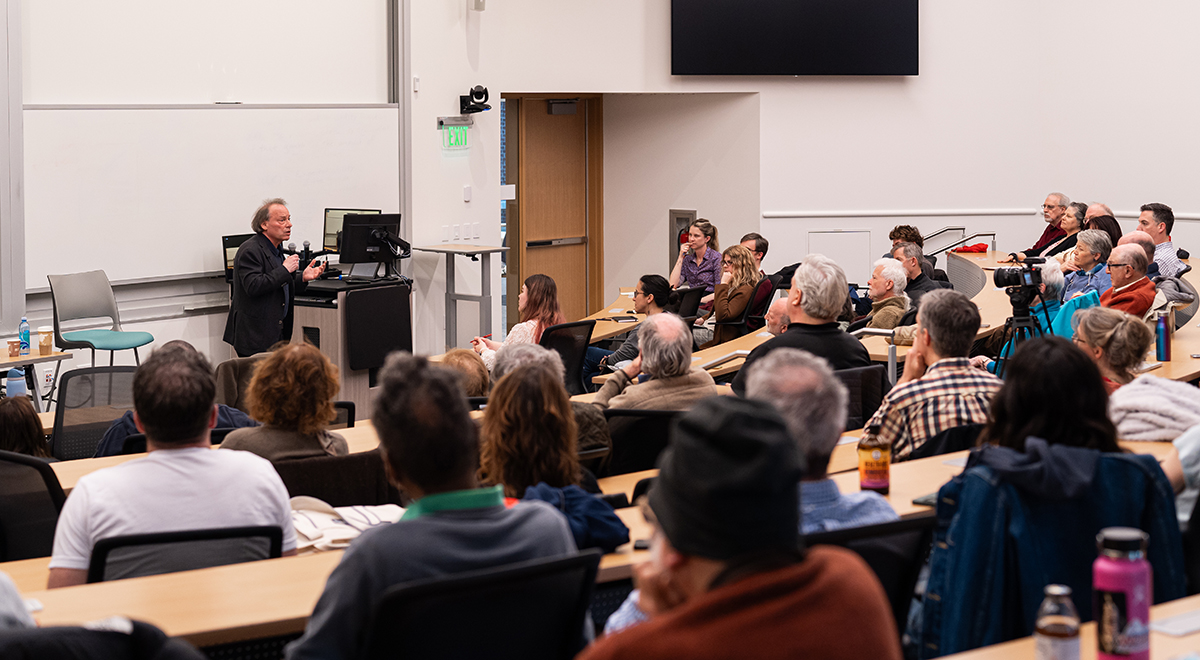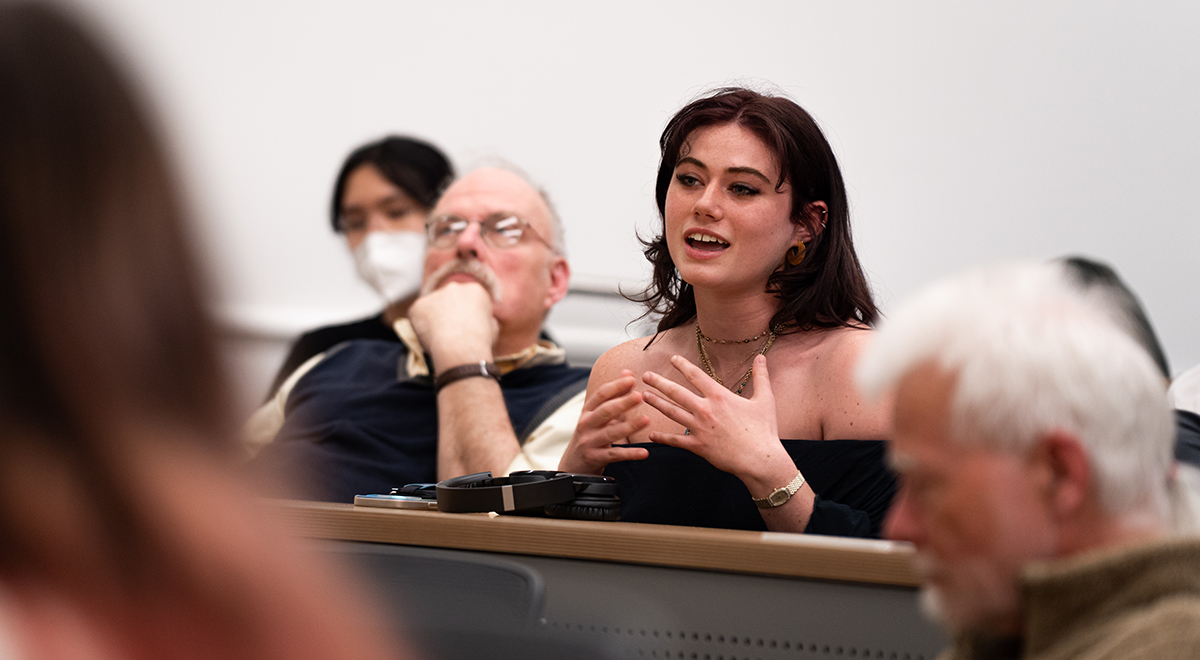Democracy Demands Passionate Defense, Says Adam Gopnik of The New Yorker

The word “liberalism” is a tricky thing. As The New Yorker magazine staff writer Adam Gopnik discovered while promoting his 2019 book A Thousand Small Sanities: The Moral Adventure of Liberalism, its variants carry different political baggage from one Western country to the next. Its breadth renders it ideologically elusive, encompassing societies with social democracies, free markets, and shades of grey. Lately, its survival has come into question even in places where its future once seemed assured.
But last Thursday in front of a near-capacity audience at the Frank Center for Public Affairs, Gopnik spoke passionately of liberalism’s origins, what it’s made possible, and the urgency of its defense. “We are blessed to live—perhaps at the tail end—of a period in which with all of its faults, all of its flaws, all of its deficits, we nonetheless can recognize what it is to have individual freedom and seek social justice at the same time,” he said.
Gopnik shared his thoughts during “To Fix Democracy, Figure Out What’s Broken,” presented as part of Wesleyan’s Democracy 2024 initiative. Over the course of 38 years with The New Yorker, Gopnik’s essays, reportage, and criticism have addressed subjects ranging from life in Paris to art to dogs, garnering three National Magazine Awards and the George Polk Award for Magazine Reporting, among other accolades. But increasingly, he’s turned toward crises in America: mass incarceration, gun violence, our democracy itself.
During a talk that referenced everyone from John Stuart Mill, Frederick Law Olmsted, and Bruce Springsteen, Gopnik settled on a definition of liberal democracy that stands on two pillars: free and fair elections, but also a range of oft-ignored, apolitical institutions—universities, volunteer fire departments, public spaces like New York’s Central Park—through which citizens meet and work together across class and cultural divides. When theocrats and autocrats shutter coffeehouses in Tehran and independent bookstores in Hong Kong, he said, it’s because of these spaces’ inherently political nature.
“Keeping democracy alive doesn’t just mean protecting free and fair elections, although obviously that’s essential to it. It means the work that all of us have to do to sustain and support all of those liberal institutions—all of those open institutions, many of them nonpolitical or apolitical—that support and defend and make possible democratic practice.”
He also invoked what happens when we fail to confront the threats in front of us. Referencing his book review on Hitler’s rise published in The New Yorker last month, Gopnik said he intentionally avoided making overt comparisons between the American present and Germany in 1932. Still, he sees similar, grim patterns that lead to democratic defeat: the corporate classes and ordinary citizens alike who rationalize demagogues as they become increasingly outrageous, the blind faith that laws will constrain authoritarian leaders. Gopnik cited the words of Nazi propaganda minister Joseph Goebbels: democracy gives its worst opponents the means to destroy it.
“No one was voting for a nihilistic, apocalyptic overthrow of all expectations and the entry into limitless war that would take the lives of tens of millions of people—no one was voting for that,” he said. “They were voting according to their traditional, tribal patterns, and they were voting against the people who they disliked and who they feared.”

With stark stakes, there’s much to do in the months ahead of the Presidential election. In the event’s introduction, Clifton Watson, director of the Jewett Center for Community Partnerships, mentioned Wesleyan’s ongoing commitment to impacting democratic and electoral processes, inviting students to pursue experiences around voter registration, advocacy work, and other election-year initiatives with support available through the University’s Political Engagement Fund.
“We want to really think about the ways in which we can, as individuals, engage American politics and engage in the political process, but also think about ways in which we can work with others to do so,” Watson said.
Repairing democracy, at its core, is a matter that demands our attention across the board. “We are living in a moment of maximum fragility,” Gopnik said, “and all of us have to use every breath in our bodies to protect it.”

